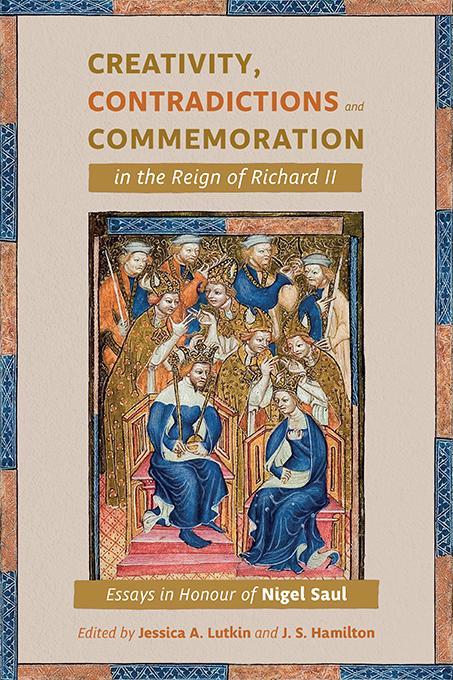 Creativity, Contradictions and Commemoration in the Reign of Richard II
Creativity, Contradictions and Commemoration in the Reign of Richard II 7 - The Representation of Devonshire in the ‘Bad’ Parliament of January 1377
Published online by Cambridge University Press: 26 May 2022
Summary
Edward III's final parliament of January 1377 has had a bad press. Summoned in the wake of its dramatic precursor that was considered even by contemporaries as the ‘bonum parliamentum’, its business was chiefly to undo the reforms agreed in the previous year. In marked contrast to the ‘Good Parliament’ that gained its name in popular discourse, the assembly of January 1377 owes the epithet by which it has become known to the Victorians. There was, however, also some contemporary criticism of the parliament. In particular, the St Albans chronicler Thomas Walsingham claimed that John of Gaunt, duke of Lancaster, had exerted his influence in an attempt to secure the return of his own supporters. This claim has been challenged by modern scholars who have pointed out that if Gaunt indeed pushed for the election of his own men, he was oddly unsuccessful, as only a limited number of Lancastrian retainers (albeit including the Speaker, Thomas Hungerford) have been identified among the membership of the Commons in the parliament, although it is impossible to be certain of the proportion of the lower house that sympathised with the duke. Particular attention has been drawn to the comparatively low rate of re-election of the members of the previous year's Good Parliament, but even this evidence, as Professor H. G. Richardson pointed out many years ago, is ultimately inconclusive. Other factors may nevertheless provide an indication of unusual circumstances prevailing in a given county's choice of parliamentary representatives, and an examination of the careers of individual MPs offers a useful starting point.
One county ostensibly unlikely to have been affected directly by the duke of Lancaster's machinations was Devonshire. Here, Gaunt held only limited estates and sway in a community that had long been dominated by the senior resident magnates, the Courtenay earls of Devon. Nevertheless, the county's choice of knights of the shire in early 1377 was an unusual one. In the 1360s and early and mid-1370s, the county's representatives were normally drawn from a range of families well connected with the earls of Devon. While there were occasional re-elections, there was no sense that any individuals or families dominated Devon's parliamentary representation. This changed after Richard II's accession, when a small number of knightly families, foremost among them the Bonvilles of Shute, came to claim the county seats almost as a matter of course.
- Type
- Chapter
- Information
- Creativity, Contradictions and Commemoration in the Reign of Richard IIEssays in Honour of Nigel Saul, pp. 135 - 148Publisher: Boydell & BrewerPrint publication year: 2022
